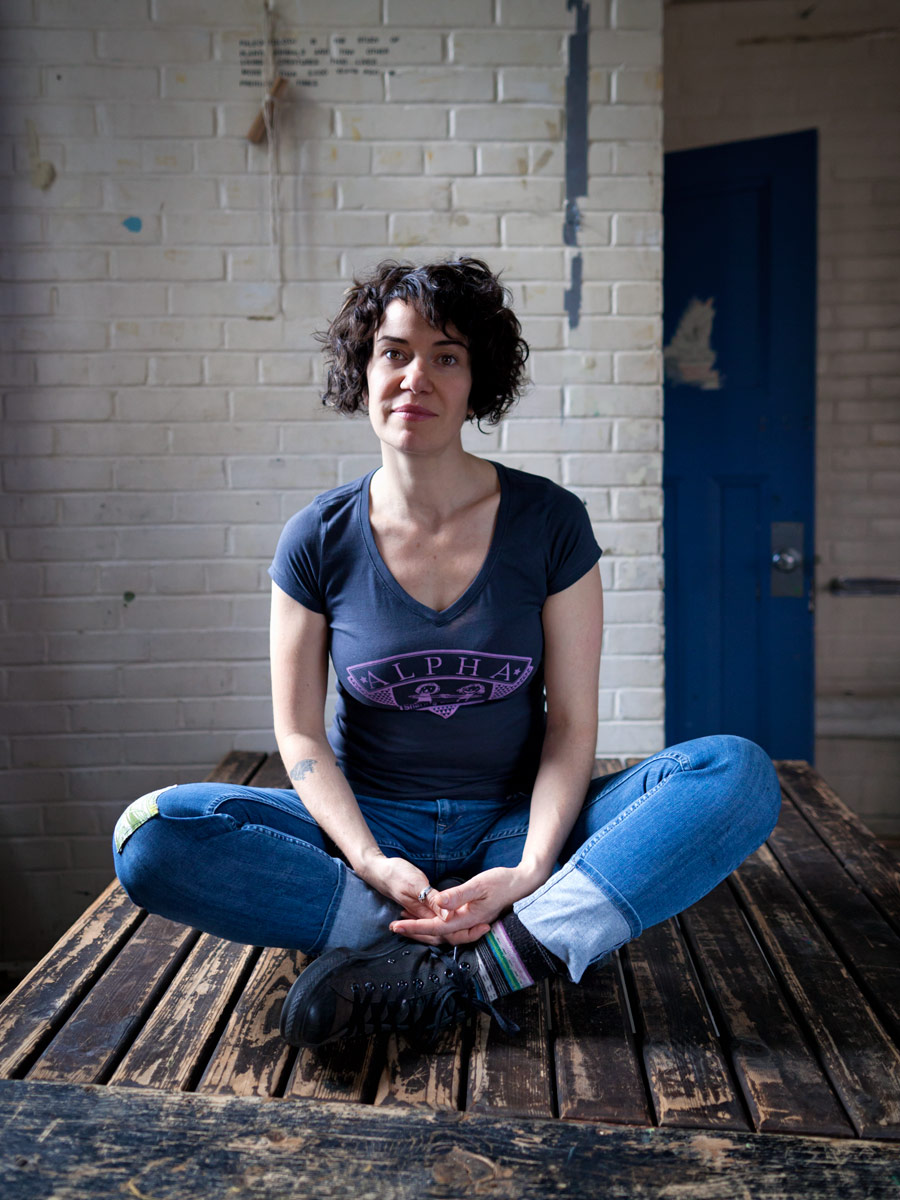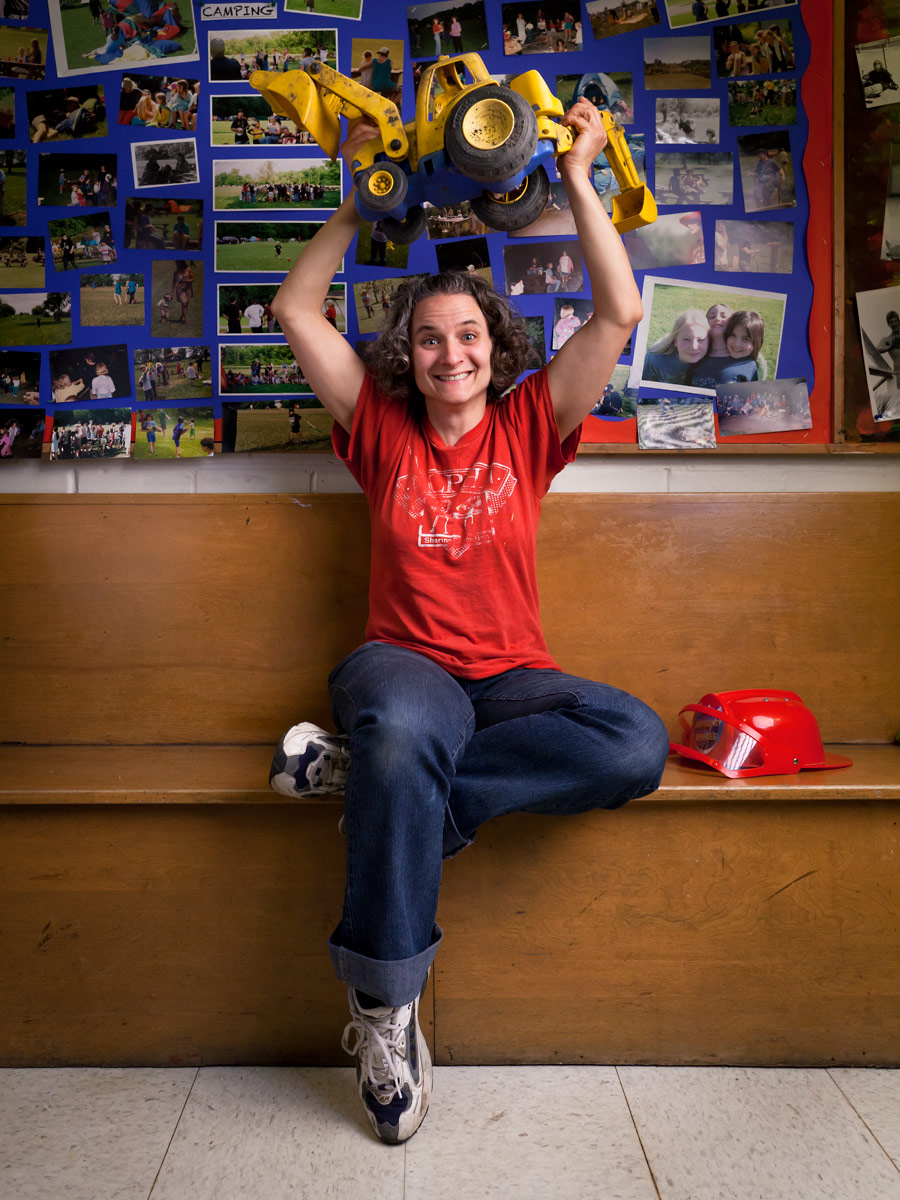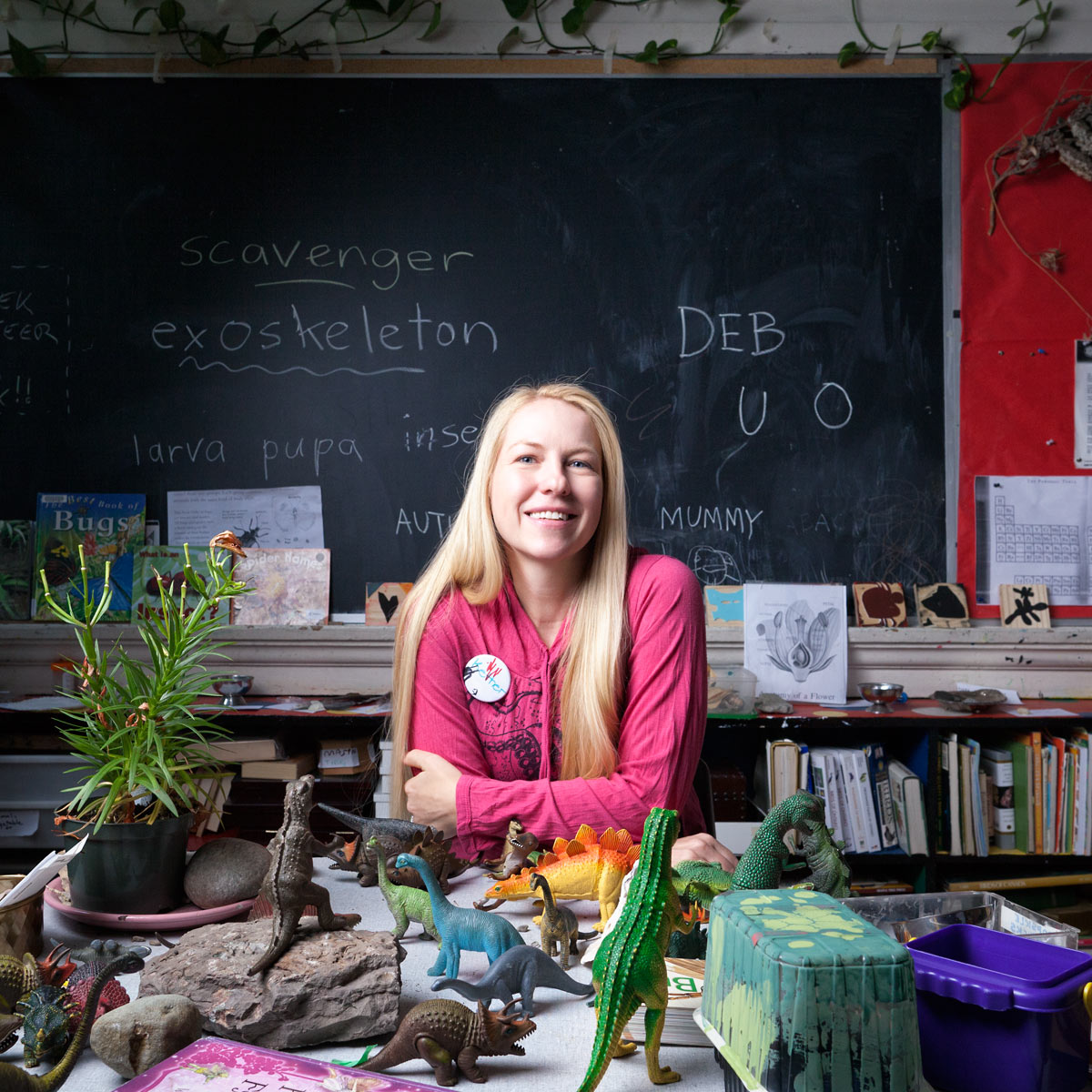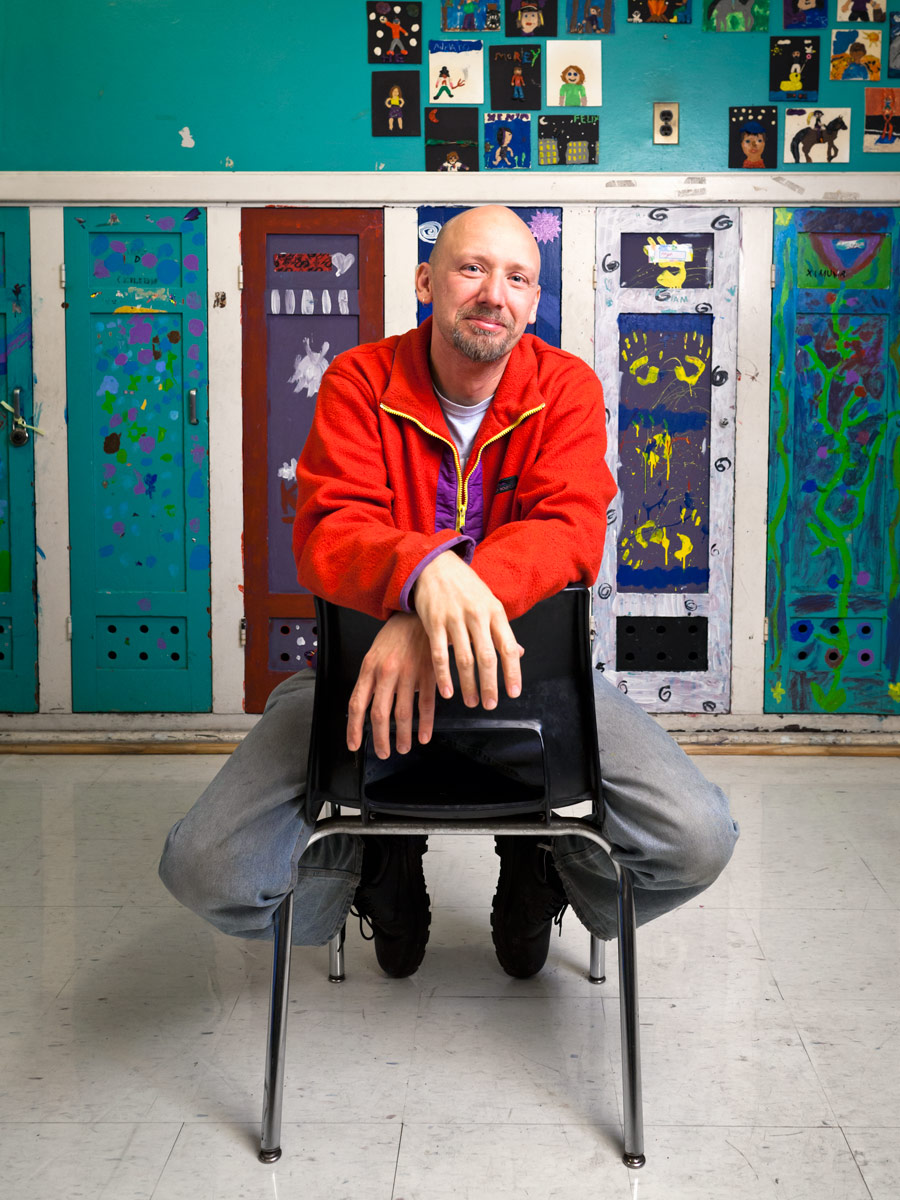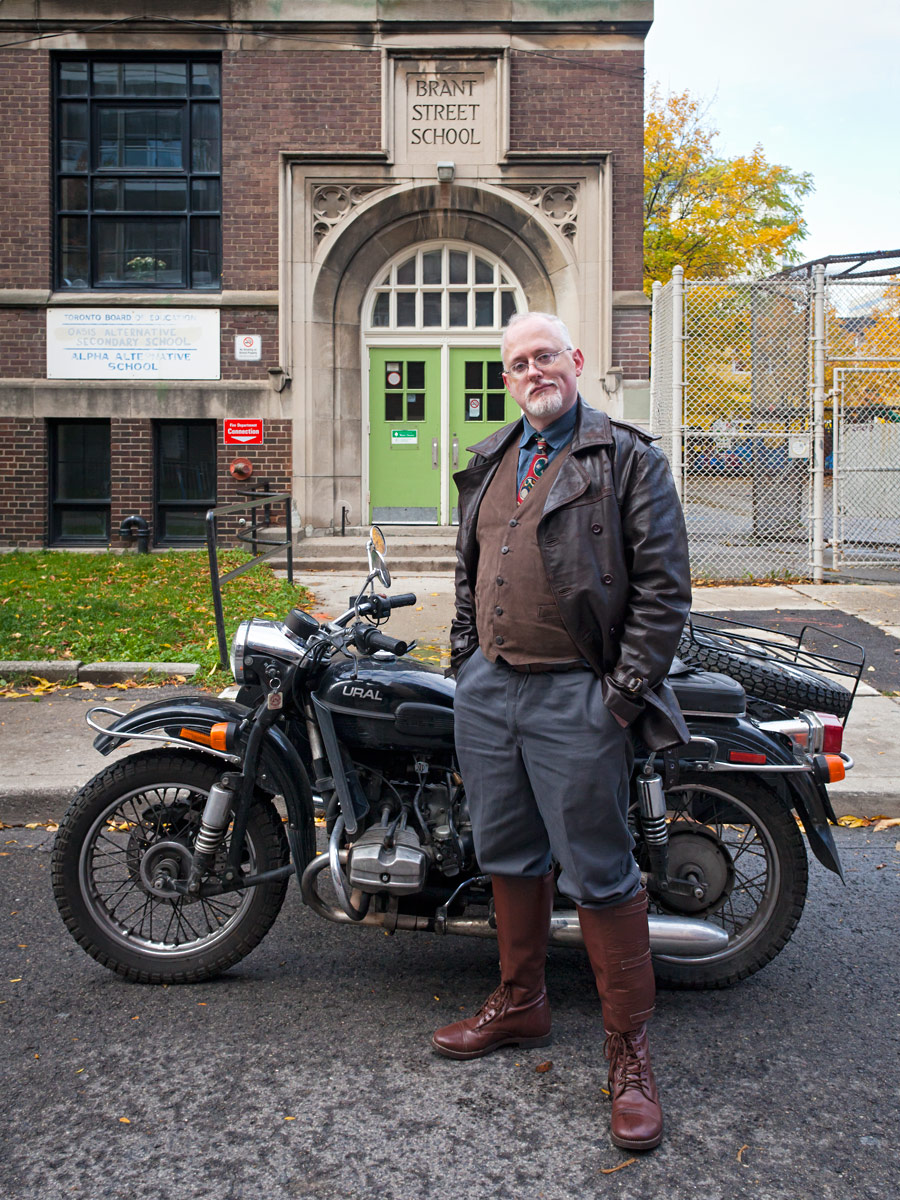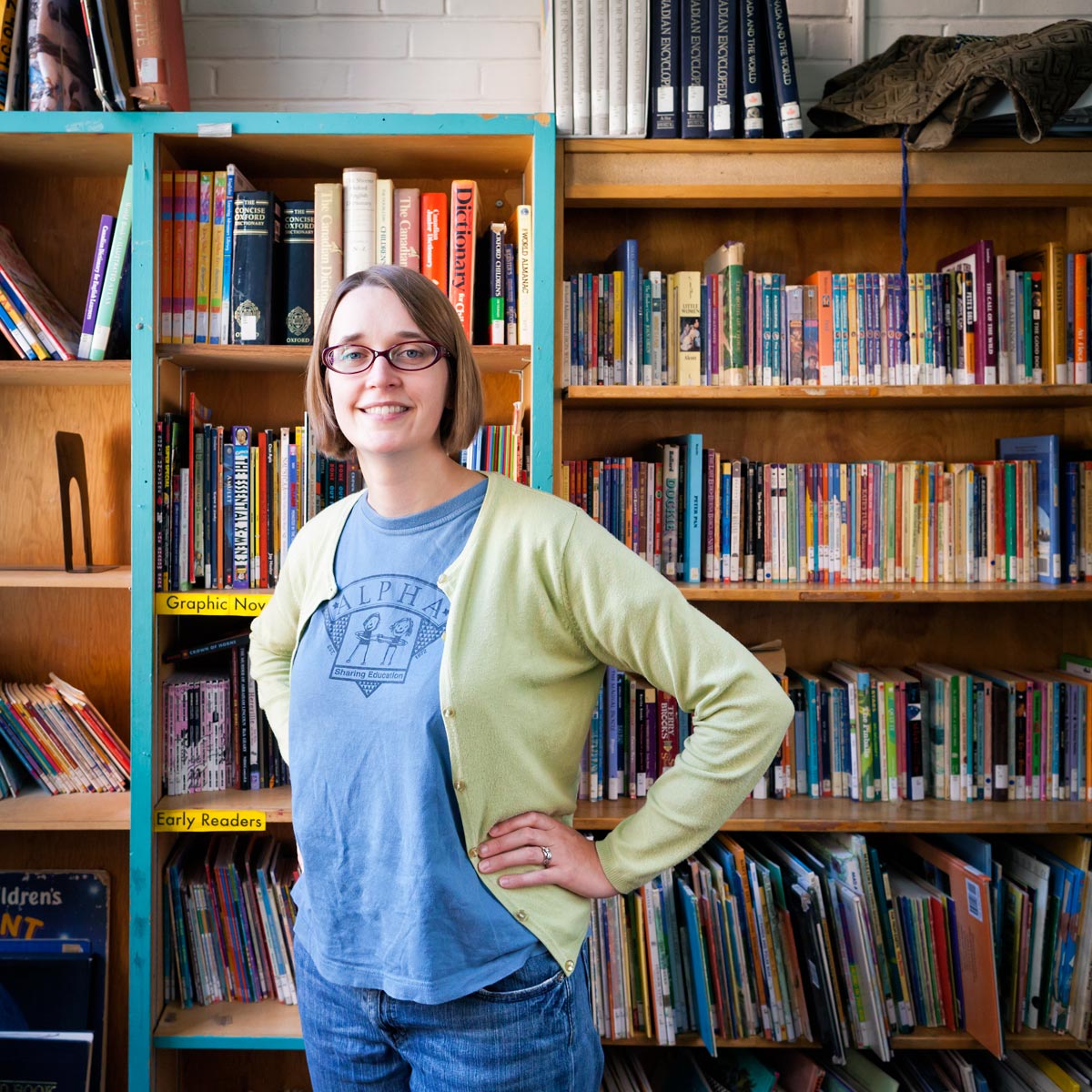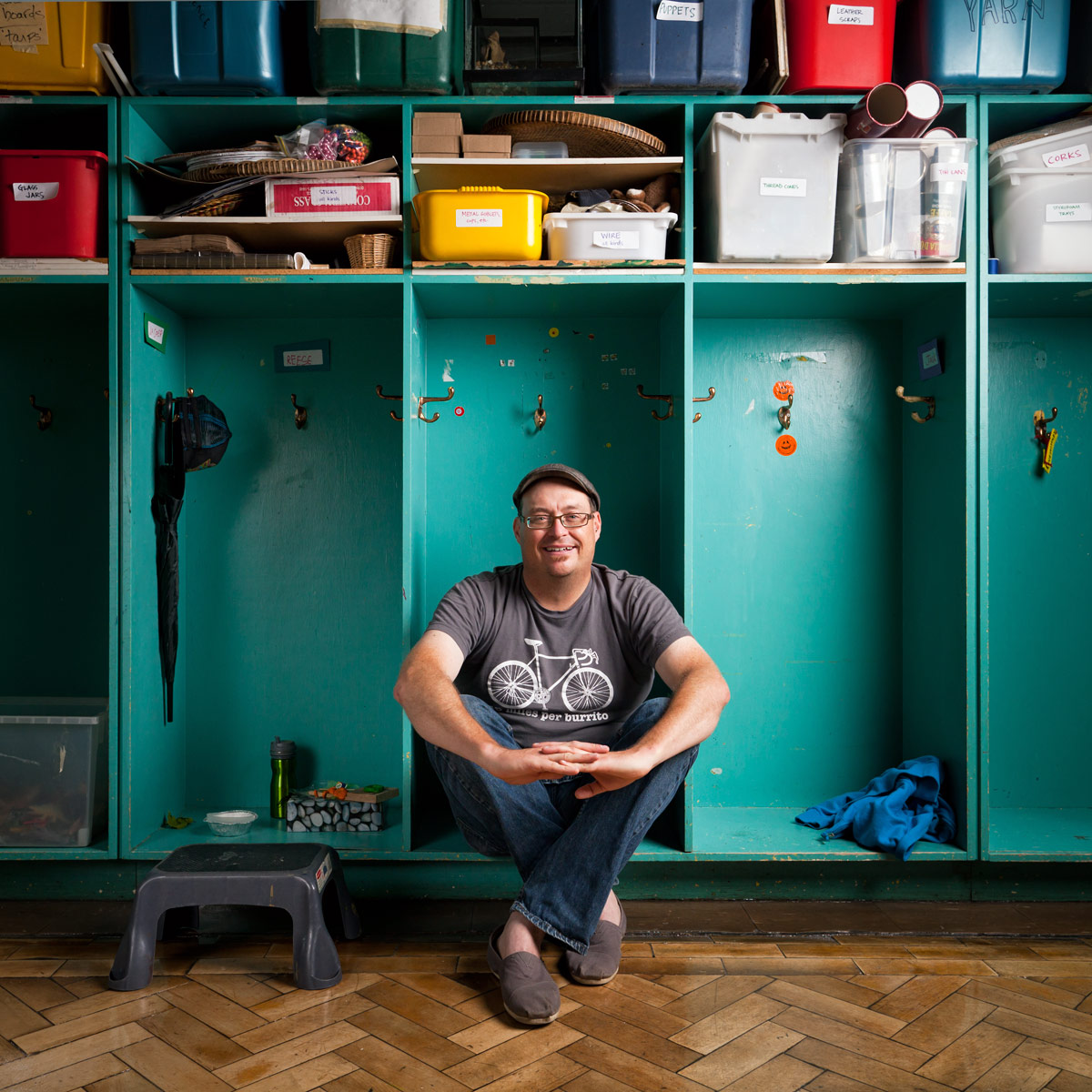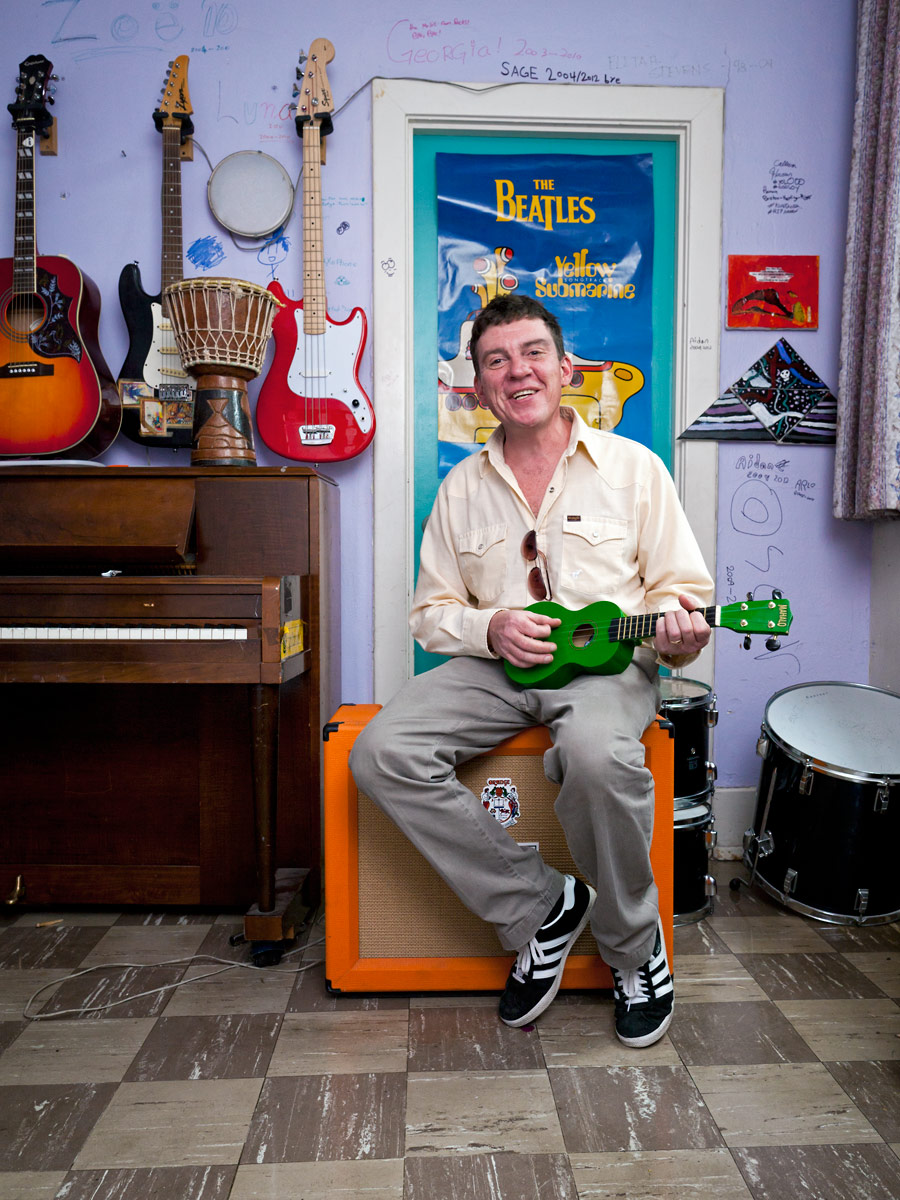“I think most kids at ALPHA had a sense of superiority about the freedom we had—to learn, to play, to be ourselves—although for me and my friends, that eventually transformed into a kind of dread about what we might be missing, how hard it was going to be for us in the ‘real world.’”
Alpha Alternative School 1972/2012:
Flannery Fielding
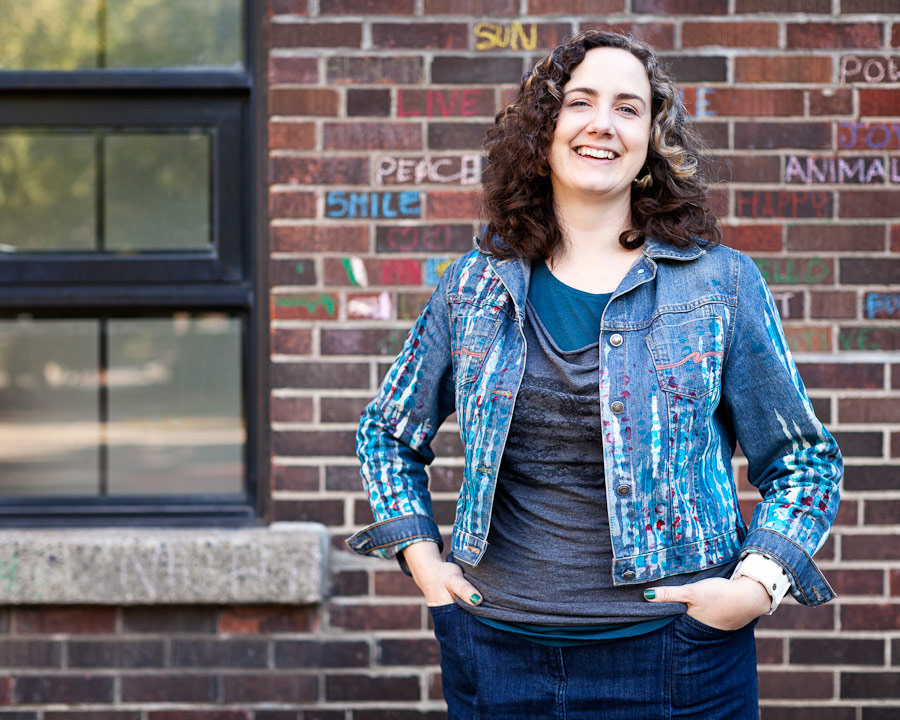
I was already at Alpha Alternative School as a baby since my older sister was there and our family was a part of the community, but I still distinctly remember going in with my mom to sign up to attend as a student. Sitting on a bench in the main hall, it seemed so big.
I always appreciated the opportunity that ALPHA offered for self-directed learning. That translated into a lot of reading for me. At home, I read Nancy Drew, the Narnia books, Madeleine L’Engle. At ALPHA, I read whatever I could get my hands on. The book I remember best was some kind of pictorial encyclopedia with pictures of children suffering from terrible diseases of malnutrition. There was a photograph of a kid with corneas clouded and shiny blue that was awful and somehow thrilling. The downside of that freedom to do what I liked was less exposure to math and other subjects, and I think that worked to reinforce my sense that I wasn’t good at math or French. Still, I have fond memories of hanging out in the back corner of one of the big rooms on the third floor, a room the big kids used for art—it had a loom and a pottery wheel—listening to music on an 8-track someone must have donated. I learned all the words to Kenny Rogers’ The Gambler, most of the songs on Breakfast in America (Supertramp!) and we played Michael Jackson’s Thriller album over and over again on this little turntable.
I think most kids at ALPHA had a sense of superiority about the freedom we had—to learn, to play, to be ourselves—although for me and my friends, that eventually transformed into a kind of dread about what we might be missing, how hard it was going to be for us in the ‘real world.’
From ALPHA I went on to two different alternative junior high schools and then to a ‘regular’ high school, which was terrifying at first but turned out to be easier to adapt to than I expected (although I never really got the hang of homework.) Drama was the one subject in high school where I truly felt at home. I seriously considered following my dad’s path into theatre and even auditioned for the National Theatre School. After high school, I worked in Toronto’s theatre community for a number of years as a performer, technician and general participant in the scene. Through another family connection I began travelling frequently to Central America, volunteering with medical groups and studying Spanish. I had to go back to get high school science credits when I decided to study nursing, pushing past the limitations of what I thought I was good at (art and language) to discover new strengths and aptitudes. It was a revelation for me when I sat down to write papers on cholera and thalidomide (for OAC Biology and OAC Chemistry, respectively) and found myself completely fascinated and inspired. I have been a nurse for ten years and I finished my graduate studies at UC San Francisco to become a Nurse Practitioner in 2011. I work in the field of Palliative Care, taking care of people who are dealing with serious illness or advanced disease and helping to address physical, emotional and spiritual aspects of illness.
The democratic structure that was built in to ALPHA had an enormous influence on my life. It is incredibly empowering as a kid to have the level of involvement that ALPHA allowed and to have a sense of agency in your life and in your community. I value the connections that were created at ALPHA, the sense of community and the support that existed between kids, teachers, parents when I was there that continues up to the present. I’m not necessarily in close touch with the people I knew during my time at ALPHA but there’s always a sense of just a few degrees of separation.
One of the things that I appreciated during my years at ALPHA was the sense of refuge it offered. I never knew what terrible mood my father would be in when I got home from school or when one of his fits of rage would be directed my way, but I knew that I wouldn’t get yelled at while I was at school. The worst that could happen would be to have Committee called on me if I did something bad or broke one of the kid-defined rules. Although I don’t think it was something I was aware of on a conscious level at the time, in retrospect I’m so grateful for the safe space and positive adult relationships that ALPHA provided.
— Flannery Fielding
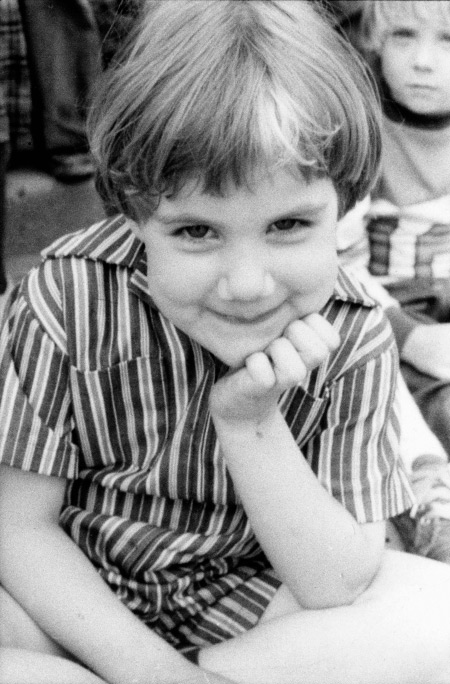
Flannery Fielding
ALPHA 1977 to 1985, ages 4–11. Studied Nursing at Ryerson University and University of California, San Francisco. Works as a Nurse Practitioner in Palliative Care. Creates art, sings, and plays the ukelele.
Colour photo by Michael Barker
Black and white photo by F. Robert Openshaw
Text and Interview by Ariel Fielding
